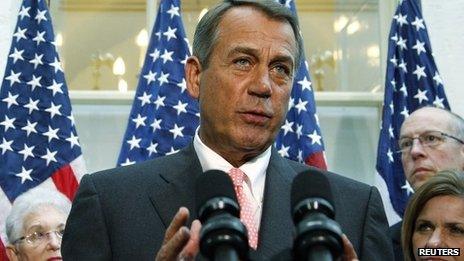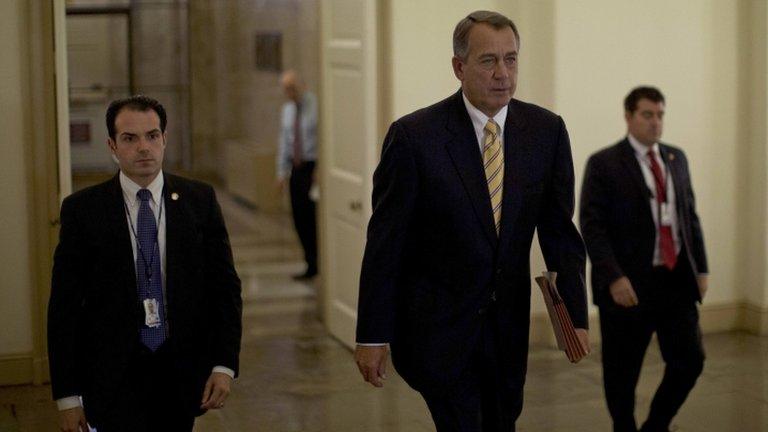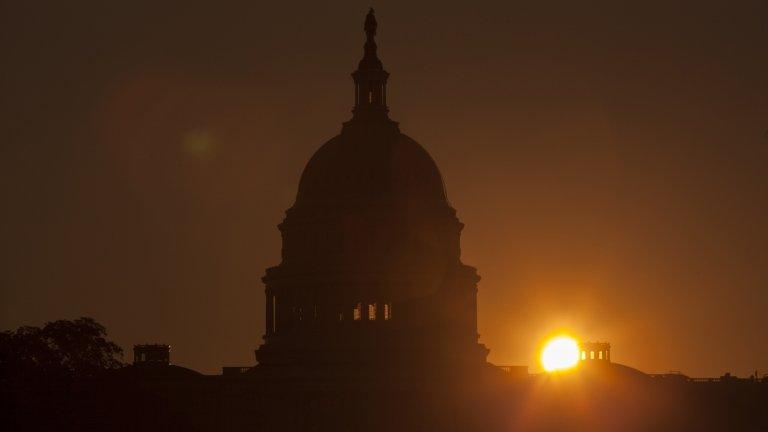Debt-ceiling offer: Beginning of the end of shutdown crisis?
- Published

Speaker Boehner sounded tough, even as he backed down
One Democrat senator has compared this crisis to a blindfolded man walking towards the edge of the cliff.
The Republican leadership has taken the blindfold off and taken a sudden leap backwards.
Republican House Speaker John Boehner sounded tough, even as he backed down.
"What we want to do is to offer the president today the ability to move - a temporary increase in the debt ceiling, an agreement to go to conference on the budget - for his willingness to sit down and discuss with us a way forward to reopen the government and to start to deal with America's pressing problems," he said.
Notice there's no mention of the original demand that Obamacare must be delayed or otherwise damaged. It would still leave the government shut down. It is not certain to succeed.
The White House briefing is due soon - but a holding statement doesn't exactly enthusiastically embrace the offer.
Once Republicans in Congress act to remove the threat of default and end this harmful government shutdown, President Barack Obama will be willing to negotiate a broader budget agreement to create jobs, grow the economy and put our fiscal house in order.
First intelligence from up on the Hill suggests that getting enough Republican votes could be hard. There will be a backlash from some supporters who will feel betrayed.
How loudly they shout now could change the calculations. And even if the initial deal is done it will mean at least six weeks of jittery uncertainty hanging over the American economy.
Still a deal to avert what some describe as a catastrophe next week is now possible, even likely - but wrestling on the edge of a cliff is an unpredictable business.
- Published10 October 2013

- Published17 October 2013

- Published9 October 2013